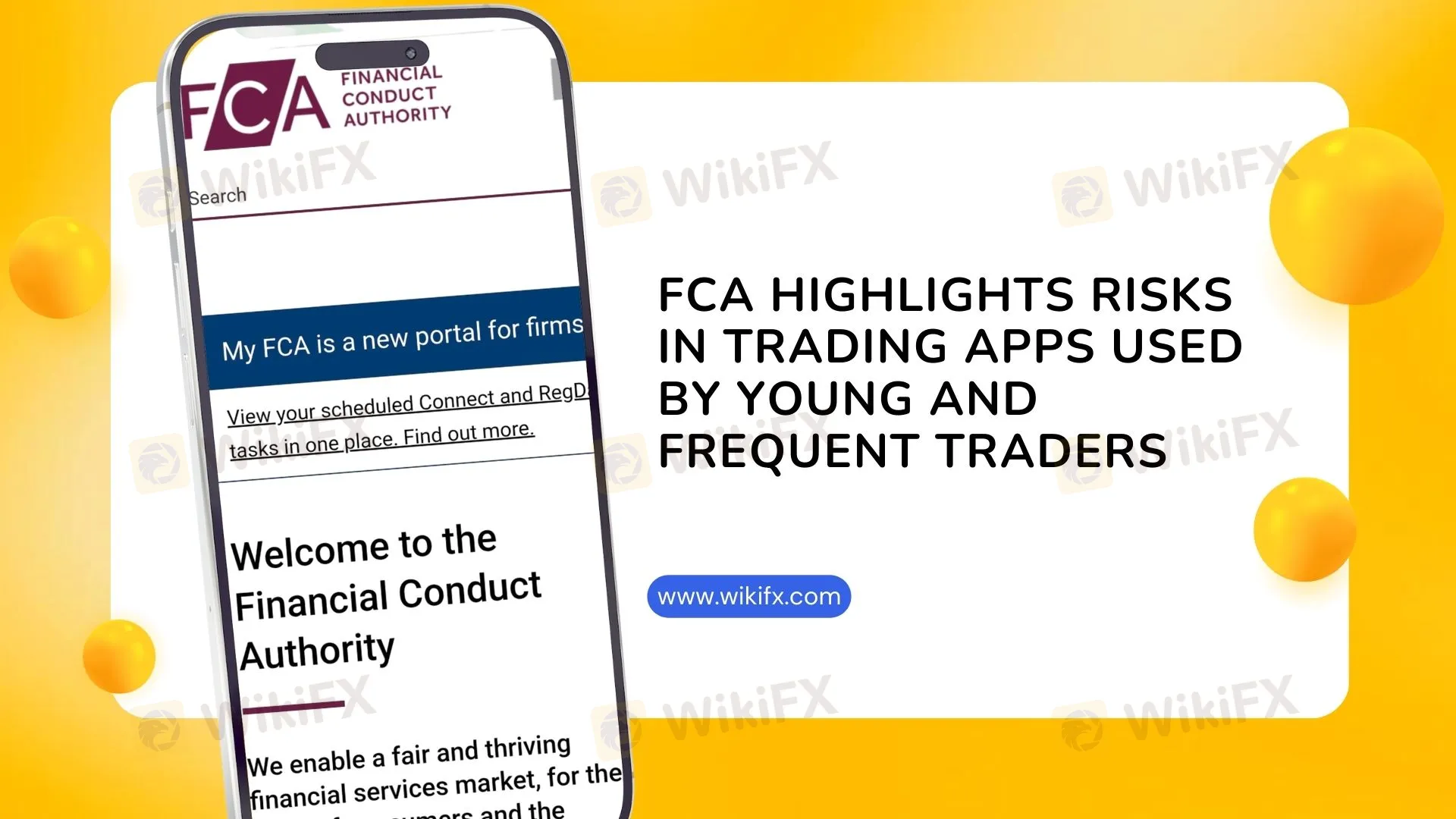简体中文
繁體中文
English
Pусский
日本語
ภาษาไทย
Tiếng Việt
Bahasa Indonesia
Español
हिन्दी
Filippiiniläinen
Français
Deutsch
Português
Türkçe
한국어
العربية
FCA Highlights Risks in Trading Apps Used by Young and Frequent Traders
Abstract:A new FCA report finds that trading app features may drive excessive trading among younger users, with some platforms lacking adequate checks for high-risk products.

The UK Financial Conduct Authority (FCA) has released a multi-firm review and behavioral research highlighting key risks associated with trading apps, particularly those used by young and frequent traders.
Key Findings on Business Models and Engagement Practices
The review covered 12 trading app providers, revealing diverse business models. Some acted as introducers, directing users to affiliated platforms. Revenue streams included commission, subscription fees, and interest from idle balances. FCA noted that some firms lacked sufficient oversight of pricing fairness and investor value.
Firms employed digital engagement practices (DEPs), such as push notifications and gamified incentives. While all firms showed some awareness of the risks, FCA cautioned that some app designs may unintentionally drive higher trade frequency and risk exposure.
Target Market and Product Suitability Concerns
The FCA observed that several apps did not adequately define their target customer profiles. In some cases, complex or high-risk products were accessible to users without sufficient knowledge or experience. Appropriateness testing was found to be weak in certain apps, allowing unqualified investors to access unsuitable offerings.
Behavioral Research Shows Demographic Impact
FCA's behavioral study indicated that trading apps with more gamified elements attracted users with lower income and higher trade frequency. These users also tended to have worse investment outcomes, raising questions about how app design may be linked to real-world financial results.
Conclusion
The FCA has not mandated specific changes but encourages firms to examine their app designs, especially concerning user engagement features, pricing transparency, and risk control procedures. With trading apps rapidly growing in popularity, especially among younger demographics, proper oversight remains critical to ensuring responsible investment access.
Disclaimer:
The views in this article only represent the author's personal views, and do not constitute investment advice on this platform. This platform does not guarantee the accuracy, completeness and timeliness of the information in the article, and will not be liable for any loss caused by the use of or reliance on the information in the article.
Read more

TriumphFX Rebrands to Continue Global Fraud: Over RM80 Million Lost
The notorious forex investment company TriumphFX, previously exposed for running a global scam operation for over a decade, is now being accused of rebranding itself to continue defrauding unsuspecting investors. Despite being unregulated and based offshore in Seychelles, TriumphFX has actively targeted Malaysian investors, luring them with false promises and eventually converting funds into cryptocurrency, making recovery nearly impossible.

TriumphFX Faces 29 Exposure Reviews on WikiFX
TriumphFX faces scrutiny with 29 exposure reviews on WikiFX, revealing regulatory warnings from ID BAPPEBTI, VU VFSC, SG MAS, and MY SCM, plus user complaints about withdrawal issues and fraud concerns.

What WikiFX Found When It Looked Into Exclusive Markets
In the fast-growing world of online trading, security and regulation are essential. One company now raising questions in this space is Exclusive Markets, a broker claiming to be regulated, but scrutiny of its licence and operations suggests a more complex picture.

TriumphFX Review 2025: A Safe Bet or a Risky Trap?
Is TriumphFX a trustworthy broker or a scam in 2025? This review explores its regulation, withdrawal issues, and more to help you decide if it's a safe bet or a risky trap.
WikiFX Broker
Latest News
How much money will you earn by investing in Vantage Broker?
IronFX vs Exness Review 2025: Comprehensive Broker Comparison
Fraudsters Are Targeting Interactive Brokers' Users with Lookalike Emails
Interactive Brokers: Global Office Visits and Licensing Details
Top Tips to Choose the Best Forex Broker in 2025
SEBI Notifies New F&O Rules for Investors - New Derivative Trading Limits & More Amendments
U.S. Jobs Data Released: A Potential Boost for Gold Prices
SkyLine Guide 2025 Malaysia: 100 Esteemed Judges Successfully Assembled
Everything you need to know about ADSS
Vantage Markets Review 2025: Trusted Forex and CFD Trading Since 2009
Currency Calculator


